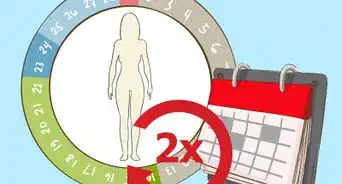This article was co-authored by wikiHow staff writer, Ali Garbacz. Our trained team of editors and researchers validate articles for accuracy and comprehensiveness.
wikiHow’s Content Management Team carefully monitors the work from our editorial staff to ensure that each article meets our high quality standards.
There are 8 references cited in this article, which can be found at the bottom of the page.
Learn more...
The Shahada (ٱلشَّهَادَةُ) is a sacred part of Islam and one of the fundamental pillars that make up the entire religion. Muslims speak the words from the Shahada daily to reaffirm their belief in God and their faith, and the Shahada is the gateway that allows someone to convert to Islam. Keep reading to learn about the Shahada, its meaning, and its significance in the Islamic religion.
Things You Should Know
- The Shahada is the first of the 5 pillars of Islam and is the most sacred statement in Islam.
- The Shahada is a declaration of faith that states that there is only one God (Allah), and that Muhammad is the messenger of God.
- Muslims recite the Shahada during the five daily prayers.
- People who wish to convert to Islam must recite the Shahada.
Steps
5 Pillars of Islam
-
1Profession of Faith (Shahada, الشَهادة). This is the profession of faith that’s repeated with every prayer. The Shahada proclaims the belief in God’s oneness and the prophethood of Muhammad. This is a person’s first step on their lifelong journey as a Muslim.[10]
-
2Prayer (salat, الصلاة). These are the ritual prayers that Muslims perform 5 times a day, just as Muhammad did. Muslims perform these prayers at dawn, midday, afternoon, dusk, and night. Prayers are performed while standing, kneeling, bowing, and prostrating before God. This is when Muslims state their intentions to worship, and they can pray with others in the community or by themselves.[11]
-
3Alms (zakat, الزكاة). The term “zakat” literally translates as “purification.” This is a donation made to help less fortunate members of the community and ensure justice in society. This acts as a reminder to Muslims to use their wealth unselfishly and to care for others who don’t have as much. The amount of this donation is usually about 2.5% of a person’s annual accumulated wealth.[12]
- In some countries, the government collects and distributes zakat. In other places, Muslims donate through local mosques and Muslim associations.
-
4Fasting (sawm, الصوم). This is the daily fast Muslims perform during the month of Ramadan (رَمَضَان). During daylight fasting hours, Muslims abstain from food, water, sexual activity, and evil thoughts. Ramadan is all about practicing patience and commitment, and the fast is a way for Muslims to discipline their body and spirit. It’s also a reminder of the social injustice that still occurs for people who can’t eat every day.[13]
- Ramadan is also a time to come together as a community since many Muslims gather with friends and family to eat and celebrate once daylight hours are over.
-
5Pilgrimage (Hajj, الحج). The Hajj is a pilgrimage to the Ka’bah (ٱلْكَعْبَة) in Mecca and is performed during the last lunar month of the Muslim year (Dhu’l-Hijjah, ذُو ٱلْحِجَّة). Every Muslim is required to make this journey at least once in their lifetime, so long as they’re in good health and have the financial means. The Hajj shows that Muslims of all races, ethnic groups, and cultures are equal in God’s presence, and everyone wears the same white garment as they walk, pray, and eat together.[14]
References
- ↑ https://www.islamic-relief.org.uk/resources/knowledge-base/five-pillars-of-islam/shahada/
- ↑ https://www.islamic-relief.org.uk/resources/knowledge-base/five-pillars-of-islam/shahada/
- ↑ https://www.islamicity.org/topics/declaration-of-faith-shahada
- ↑ https://www.penfield.edu/webpages/jgiotto/onlinetextbook.cfm?subpage=1684316
- ↑ https://www.islamicity.org/topics/declaration-of-faith-shahada
- ↑ https://www.al-islam.org/prayer-salat-according-five-islamic-schools-law-muhammad-jawad-mughniyya/adhan-call-prayer
- ↑ https://www.al-islam.org/articles/laws-and-practices-how-perform-daily-prayers
- ↑ https://www.islamreligion.com/articles/204/how-to-convert-to-islam-and-become-muslim/
- ↑ https://pluralism.org/birth-to-death
- ↑ https://hwpi.harvard.edu/files/pluralism/files/the_five_pillars_1.pdf
- ↑ https://hwpi.harvard.edu/files/pluralism/files/the_five_pillars_1.pdf
- ↑ https://hwpi.harvard.edu/files/pluralism/files/the_five_pillars_1.pdf
- ↑ https://hwpi.harvard.edu/files/pluralism/files/the_five_pillars_1.pdf
- ↑ https://hwpi.harvard.edu/files/pluralism/files/the_five_pillars_1.pdf













-Step-25-Version-2.webp)



















































wikiHow’s Content Management Team carefully monitors the work from our editorial staff to ensure that each article meets our high quality standards.